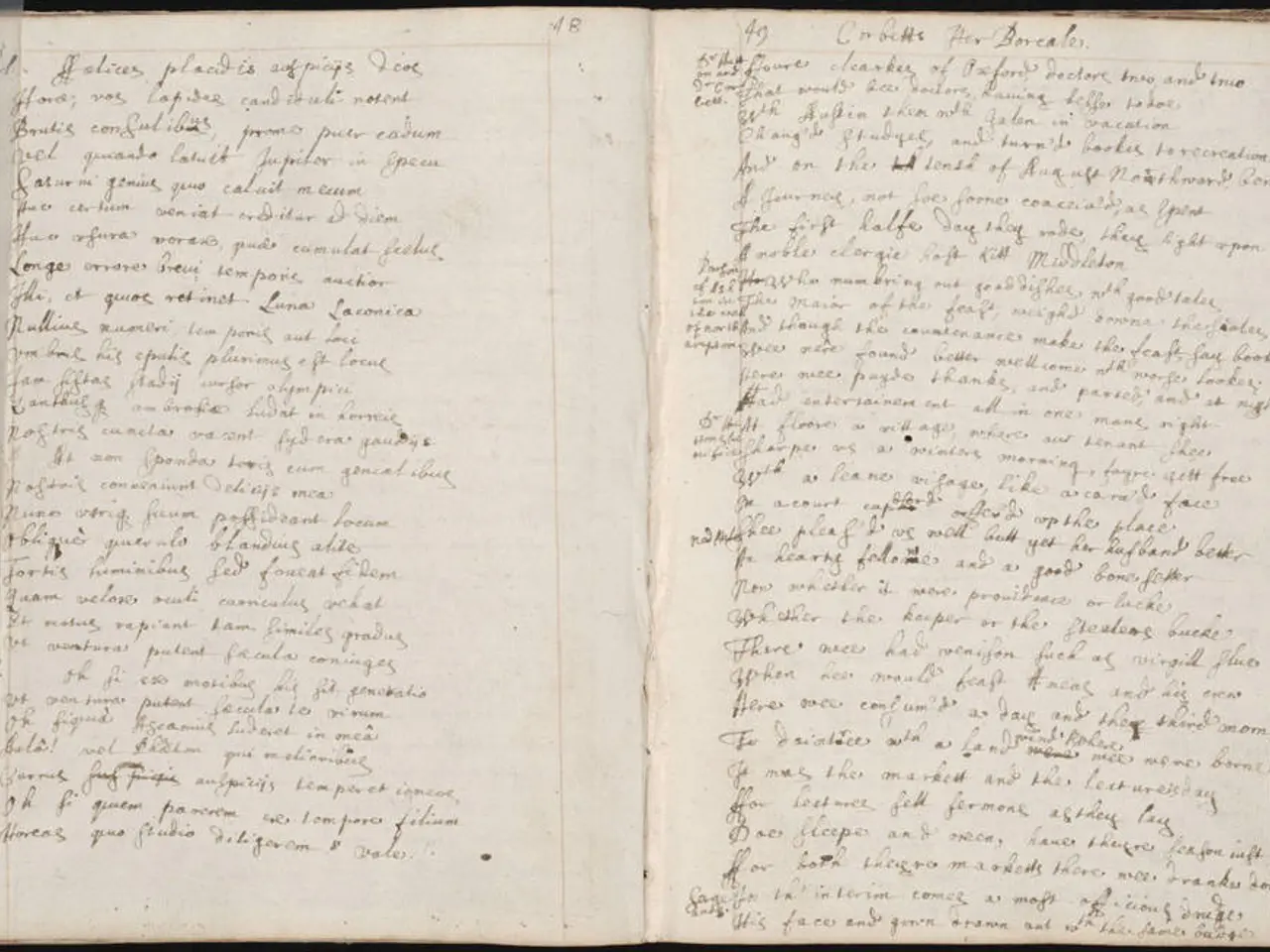Strategies for Organizing Study Time for Distinct SAT Areas: A Wiser Approach to Exam Preparation
Preparing for the SAT can be a daunting task, but breaking down study sessions by section can make the process smarter, more focused, and more effective. Here's a guide to help you create an effective section-specific study plan for the SAT Reading, Writing, and Math sections.
Reading
Practice active reading with a variety of passages, focusing on quickly identifying main ideas and line references. Predict answers before looking at choices, and refine elimination techniques for wrong answers. Emphasize logical inference and evidence-based answers.
Writing
Focus on grammar rules, sentence structure, and rhetorical skills. Study standard English conventions and practice spotting and correcting errors in passages.
Math
Review fundamental concepts like algebra, geometry, and data analysis. Practice problem-solving under timed conditions, and use resources like Khan Academy tailored for SAT math.
Regular timed practice tests are essential to improve pacing and adapt strategies. Building vocabulary systematically for the Reading and Writing sections can be achieved using apps or lists.
A structured routine might include daily 1-2 hours of focused section practice, weekly full tests, and monthly reviews to track progress and adjust focus areas.
Study Session Structure
A 60-minute study session example includes 10 minutes for concept review, 30 minutes for practice problems or passages, 10 minutes for error review, and 10 minutes for a timed quiz. A 30-minute study session example includes 10 minutes for concept review, 15 minutes for targeted practice, and 5 minutes for reflection.
For most students, focused sessions on one or two sections per day are more effective. If a student is much weaker in one section, they should allocate extra study sessions for that section each week.
Combining Sections
As endurance is built for test day, combining sections in one study session is possible. However, it's recommended to rotate section focus, such as Reading on Monday and Thursday, Math on Tuesday and Friday, Writing on Wednesday and Saturday.
Tools for Support
Apps like Bluebook, Khan Academy, and Magoosh can support section-specific study. To keep study sessions from becoming monotonous, vary drills, use different question types, and set small challenges.
Tracking Progress
Keeping an error log that tracks by section and question type can be helpful. Regularly reviewing this log can help identify areas of improvement and adjust the study plan accordingly.
Official Practice Tests
Official practice tests offer realistic practice for the SAT. A 90-minute study session example includes 15 minutes for concept review, 45 minutes for mixed drills, 15 minutes for error analysis, and 15 minutes for strategy refinement.
Each section of the SAT requires a focused study plan for effective preparation. By following this approach, you'll be well on your way to acing the SAT. Detailed preparation tips from GeeksforGeeks on SAT Reading and Writing, a 3-month structured prep plan emphasizing diagnostic testing and focused study, and strategic reading tips to master question types and passage comprehension are all valuable resources to support your journey.
Education and self-development can be enhanced through online resources like Khan Academy, Magoosh, and Bluebook, specifically designed for SAT section-specific study. Learning effectively involves regular practice, focusing on logical inference, evidence-based answers in Reading, mastering grammar rules, sentence structure, and rhetorical skills in Writing, and reviewing fundamental math concepts like algebra, geometry, and data analysis.




